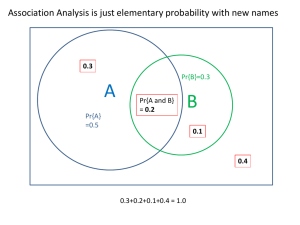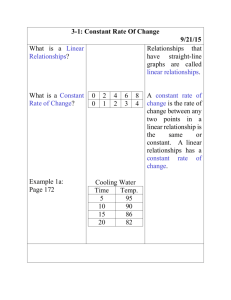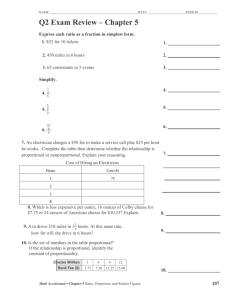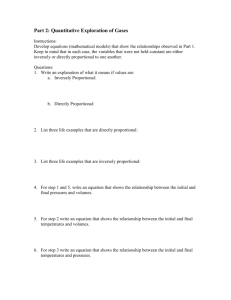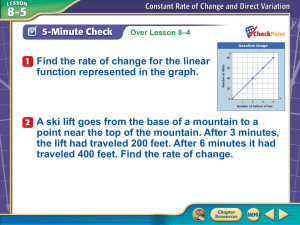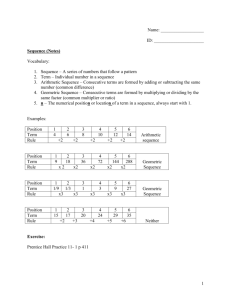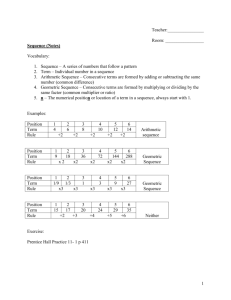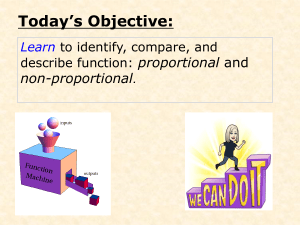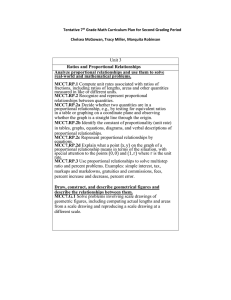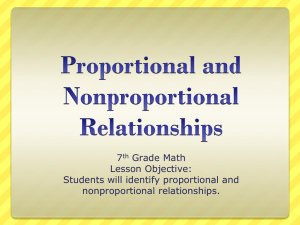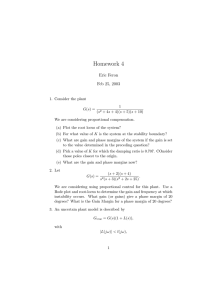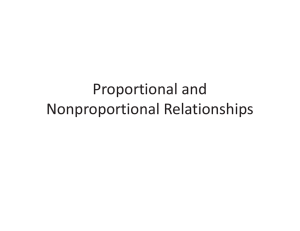Eighth Grade: Mathematics Unit#1: Exploring Linear and Inverse
advertisement
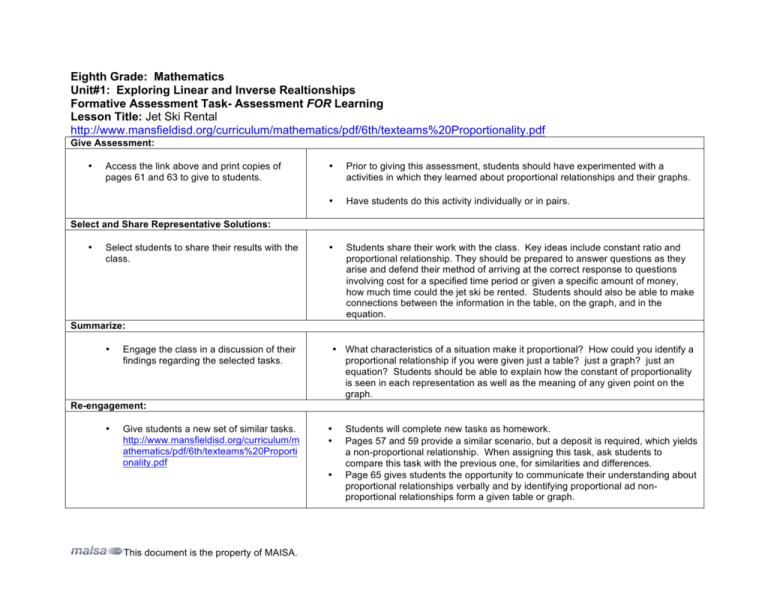
Eighth Grade: Mathematics Unit#1: Exploring Linear and Inverse Realtionships Formative Assessment Task- Assessment FOR Learning Lesson Title: Jet Ski Rental http://www.mansfieldisd.org/curriculum/mathematics/pdf/6th/texteams%20Proportionality.pdf Give Assessment: • Access the link above and print copies of pages 61 and 63 to give to students. • Prior to giving this assessment, students should have experimented with a activities in which they learned about proportional relationships and their graphs. • Have students do this activity individually or in pairs. • Students share their work with the class. Key ideas include constant ratio and proportional relationship. They should be prepared to answer questions as they arise and defend their method of arriving at the correct response to questions involving cost for a specified time period or given a specific amount of money, how much time could the jet ski be rented. Students should also be able to make connections between the information in the table, on the graph, and in the equation. Select and Share Representative Solutions: • Select students to share their results with the class. Summarize: • Engage the class in a discussion of their findings regarding the selected tasks. • What characteristics of a situation make it proportional? How could you identify a proportional relationship if you were given just a table? just a graph? just an equation? Students should be able to explain how the constant of proportionality is seen in each representation as well as the meaning of any given point on the graph. Re-engagement: • Give students a new set of similar tasks. http://www.mansfieldisd.org/curriculum/m athematics/pdf/6th/texteams%20Proporti onality.pdf • • • This document is the property of MAISA. Students will complete new tasks as homework. Pages 57 and 59 provide a similar scenario, but a deposit is required, which yields a non-proportional relationship. When assigning this task, ask students to compare this task with the previous one, for similarities and differences. Page 65 gives students the opportunity to communicate their understanding about proportional relationships verbally and by identifying proportional ad nonproportional relationships form a given table or graph.
